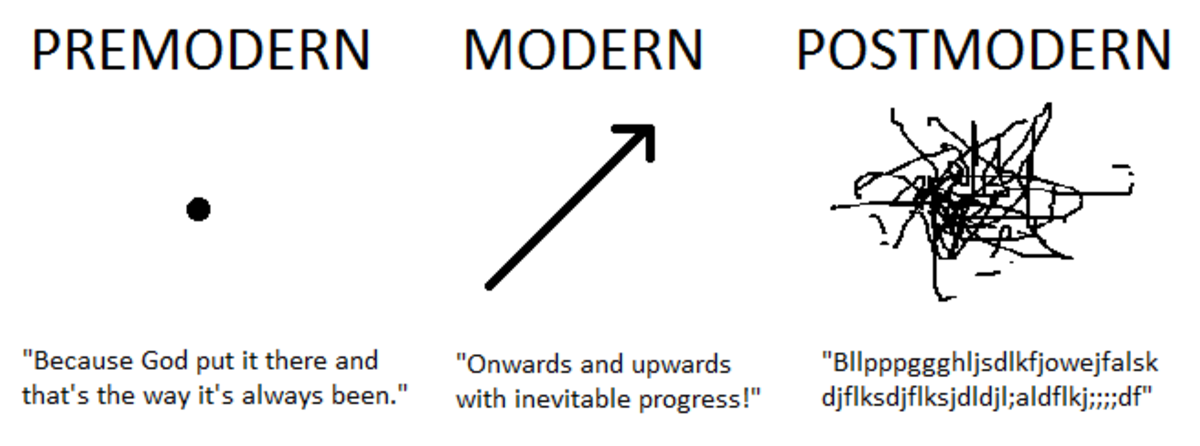 |
| Courtesy of Owlcation |
A choice bit of postmodern prose recently came my way. The overall heft of the essay seemed to be to discredit Descartes’ thesis, based on a set of prior logical arguments, not here addressed, that clarity and distinctness of perception was a measure of truth.
Here’s the thesis statement for the essay.
“While truth as overall result or effect is readily understood by everybody, it is a far cry from the accuracy and plausibility sought by scientists. The ability to accomplish and get things done, however tenuous and ill-defined, is a very old notion even if it does not lend itself to statement or claim. As instinctive wisdom would have it, there is a truth to everything, the truth of a place ( its overall effect), the truth of a job, the truth of a relationship, the truth of a sculpture, the truth of a material. It is recognized ( often belatedly) by its closeness to, or fidelity with, experience. Nitty-gritty to the core, it is often talked about mythically as if belonging to a different order. This is but a backhand way of saying we are in the presence of a field phenomenon defined only by interaction, at once environmental and many-sided. In what follows we propose to explore what it is that instant replay brings to the table no matter the circumstances.”
It is tiresome to try to extract the meaning from such
prose.
The obvious task this paragraph is here to perform is to
define the meaning of the word “Truth.” There is an obvious and simple way to
do this: quote a standard dictionary. Instead, the author goes on for a
paragraph saying vague, disconnected things.
Is truth at least in some sense readily understood by
everybody? Sounds like a dubious assertion. If so, why are we prompted to
discuss it here, and so often throughout the history of philosophy?
Is truth an “overall result or effect”? What can that mean?
Are causes as opposed to results untrue? Eh? If causes are not real, how can
they produce effects?
He suggests that scientists measure “truth” by
“plausibility.” But to be true, a thing has to be more than merely plausible.
To be true means it is certain. He might be using the wrong word here, or he
may just be spinning words—to sound “plausible.” One simple way to sound
plausible is to use the word “plausible” a lot.
“The ability to accomplish and get things done, however
tenuous and ill-defined, is a very old notion.” It is unclear why this sentence
is here—presumably the author means that “the ability to accomplish and get
things done” has something to do with truth. But an ability is not a notion; an
act is not an idea. What does he mean here, then? What does it mean to call an
action “ill-defined”? In what sense is an action “defined”? Unless it is
something like a dance step, it just is.
And is he asserting that “truth” is the same as “getting
things done”? Who says that? So if I swat a fly, I have discovered some
truth? Or have I created a truth? Does
the fly not exist, since nobody has “gotten it done”?
“Instinctive wisdom” seems to be a contradiction in terms.
Wisdom is “the quality of having experience and knowledge.” Making decisions
based on experience and knowledge is the opposite of making decisions based on
instinct. One might use such a paradox to draw attention to a point, but there
is no point. It is not explained.
And again, is it instinct to suppose “there is a truth to
everything”? That means there is a truth to a lie, a truth to a hallucination,
a truth to an error, and so forth. Really?
“The truth of a place” is described as “its overall effect.”
But does that mean that no place exists except as experienced? If nobody visits
Australia, it is not there? Its effect on whom? Me, you, the average person, the
most recent person to experience it, only those currently experiencing it, or
God? If true, why are places specified? Why would this not be equally true of
other things experienced?
And so on and on. It is a word salad. Without the vinegar.












No comments:
Post a Comment